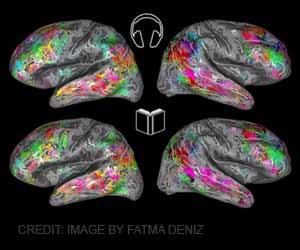
‘78.9 percent of the patients that had been evaluated had moderate or severe dementia at the time of diagnosis already. An increase in home-based, patient-centered medical care, regardless of the patient's living status, could be a way to improve recognition of cognitive problems and increase awareness.’
Tweet it Now
Alzheimer's disease is the most common form of dementia and may contribute to 60-70 percent of cases.Researchers retrospectively reviewed 110 randomly-chosen initial evaluations from the Spectrum Health Medical Group Neurocognitive Clinic from the period 2008-2015. They found that 78.9 percent of the patients evaluated already had moderate or severe dementia at the time of diagnosis.
"The findings indicate that people are living with dementia for significant periods of time before seeking diagnosis and treatment," said Timothy Thoits, MD, lead author, and neurology division chief, Spectrum Health Medical Group. "The earlier the diagnosis, the earlier treatment can begin and the earlier the benefit to the patient and his or her family and caregivers."
The Spectrum Health research showed no link between cohabitation and earlier diagnosis of the disease. Previous research on the relationship between cohabitation and dementia severity at the time of diagnosis is controversial, with some research showing earlier diagnoses for patients who live alone, and another study showing earlier diagnoses for patients who live with a son or daughter than for patients living alone or with a spouse.
Thoits and his team of researchers reviewed the initial diagnostic patient evaluations, which included a neurological examination, Montreal Cognitive Assessment and a battery of neuropsychological testing. They determined dementia stage and severity by correlating it with the number of lifestyle changes recommended at the time of diagnosis-a novel study method that has not previously been used.
Advertisement
The study concludes that "an increase in home-based, patient-centered medical care, regardless of the patient's living status, may be one way to improve recognition of cognitive deficits and increase the frequency of important and necessary early cognitive evaluations."
Advertisement
According to the WHO:
- Dementia is a syndrome in which there is deterioration in memory, thinking, behavior and the ability to perform everyday activities.
- Although dementia mainly affects older people, it is not a normal part of aging.
- Worldwide, around 50 million people have dementia, and there are nearly 10 million new cases every year.
- Alzheimer's disease is the most common form of dementia and may contribute to 60-70 percent of cases.
- Dementia is one of the major causes of disability and dependency among older people worldwide. It has a physical, psychological, social and economic impact, not only on people with dementia but also on their careers, families, and society at large.
Source-Eurekalert














